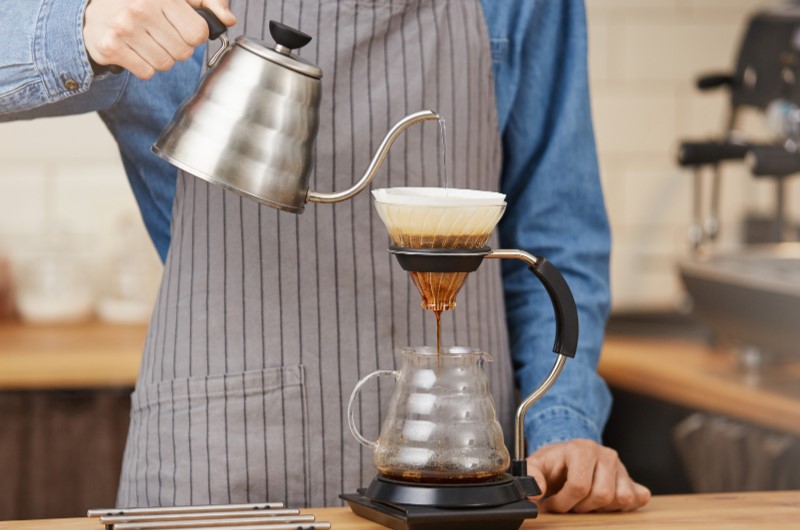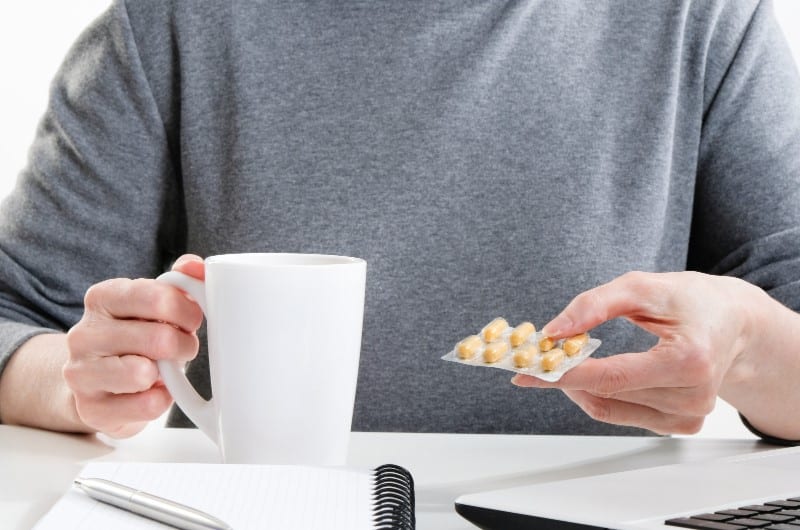Drinking caffeine after brain injury is safe as long as it is not consumed in excess. Although it promotes healing, excessive consumption might aggravate the present condition and kill brain cells. It affects people differently depending on their endurance level, drug interactions, and whether they are pregnant or nursing. It’s advisable to take preventative steps rather than taking chances, such as living a healthy lifestyle, eating a balanced diet, and exercising.
People who love coffee can’t go a day without consuming it. So quitting it cold turkey after recovering from a brain injury can be challenging to follow.
Brain injury, a common health concern, affects at least 69 million people worldwide yearly.
Therefore, it is essential to understand caffeine’s effects on brain injury recovery.
Can caffeine consumption help you in the recovery process? How much coffee is too much?
One should consider the effects of caffeine after brain injury and the amount to be consumed while recovering.
The results of consuming caffeine too much, interaction with medications, and safe caffeine sources should be considered before high intake.
Effects of caffeine after brain injury
Caffeine effects on the brain after an injury are divided.
After brain injury, people tend to use caffeine for recovery. So, is caffeine after brain injury safe?
☕ Antioxidants included in coffee help the brain work more effectively and prevent inflammation. So from a certain point of view, caffeine could prove to be helpful in recovery.
But according to some studies, caffeine prevents the release of adenosine, a neuroprotective agent that reduces inflammation and helps in brain recovery.
From this point of view, it can make the recovery process take longer.
Since caffeine is a vasoconstrictor, it reduces the blood vessels in the brain and decreases blood flow.

Without sufficient cerebral blood flow, the brain cannot receive the essential nutrients it requires for self-healing, making it harder to function.
Everything comes down to focusing on how much caffeine intake is helpful and its frequency.
A higher amount and frequency of caffeine intake can significantly change the level of vasoconstriction the body experiences.
How much coffee can I drink after my brain injury?
If you want to consider taking caffeine after a brain injury to help you heal, it is essential to fully understand the recommended amount of coffee you should take in.
Excess is bad
While caffeine may help you recover from brain injuries, too much may harm your body.
It should be taken in small amounts. Drinking caffeine in excess can irritate your present condition, which is already sensitive.
Since caffeine is also present in other beverages, such as soft drinks, that also counts in your daily caffeine intake.
Too much caffeine, such as more than 2 cups each day, can affect your brain from recovering properly.
Daily dosage
Generally, you should not take more than 400 mg of caffeine daily.
However, the amount of caffeine best for people with brain injuries depends on their tolerance level and overall wellness.
Considerations for brain injury patients
Brain injury people considering taking caffeine for their recovery process should be aware of some important factors, which include:
Interaction with medication
Some medicine interacts with caffeine leading to adverse side effects such as anxiety, insomnia, and high heart rate.
You should consult the doctor to determine which medicine may interact with caffeine.

Individual differences
Caffeine may only suit some people. Other people may be caffeine sensitive while others may not.
Some factors that may impact how caffeine affects some people include age, weight, and general health. If you’ve had COVID-19, your caffeine tolerance could also be impacted.
It would be best to consider starting with a low dosage of caffeine before increasing it to monitor how it will react with your body.
Pregnancy and breastfeeding
Women who are pregnant or breastfeeding should be cautious when consuming caffeine. Too much caffeine can harm the fetus or newborn.
The recommended caffeine intake for pregnant and breastfeeding women with brain injury should not be more than 200mg per day.
Consulting a professional healthcare provider
You should consult your doctor if you are considering taking caffeine for the brain injury recovery process.
The healthcare professional will advise whether caffeine is safe for the recovery process.
They can also recommend the correct dosage and advise on potential risks and interactions.
Potential side effects of consuming caffeine after brain injury
While caffeine has potential benefits for brain injury recovery, it is essential to consider some side effects, such as anxiety, insomnia, and blood pressure.
You should consult a professional doctor to assess caffeine’s potential risks and side effects. The doctor will be able to recommend the right dosage for you.
Your already delicate brain may get irritated if you consume too much caffeine while you are recovering from a brain injury, especially in the early stages.
This could hinder your recuperation and injure your brain simultaneously.
Sources of caffeine for brain injury patients
Brain injury patients should consider where they get caffeine from if they consider taking it for recovery.
Choosing caffeine sources that are safe and benefit the brain recovery process is essential.
Caffeine is commonly found in coffee beans, some drinks, fruits, and leaves.
It is, however, essential to note the caffeine content that may not help you in the brain recovery process.
Some drinks, such as energy drinks, may contain high levels of sugar, which harm your health.
Some caffeine-healthier sources are herbal tea and natural supplements like green tea.
They all provide a natural energy boost without leaving any adverse side effects of caffeine on your body.
Alternative to caffeine

A new, healthy lifestyle full of energy and a diet that supports brain function are two alternatives to dealing with this problem.
Too much intake of caffeine is risky, but there are healthier ways to get rid of this brain fog without using artificial stimulants. Here are some energy-boosting alternatives for quick healing;
- Get energy-boosting fruits and veggies
- Herbal or green tea
- Stay hydrated
- Get sound sleep
- Exercise daily
- Try to be stress-free
Conclusion
My father survived a brain injury and used low-form caffeine tea after that. Although we never considered it to be a brain or body healer, it relaxes your muscles and relieves weariness.
Too much caffeine can affect your brain injury recovery process.
You can get longer bursts of energy with regular exercise and a healthy diet without suffering from the drawbacks of caffeine.
FAQs
Is caffeine after brain injury safe?
According to professional healthcare providers, the answer is yes and no.
Too much caffeine intake can affect the already injured brain causing slow recovery.
However, consuming one or two cups of coffee daily is safe since caffeine is low.
Are there any options for people with brain injuries that don’t contain caffeine?
Yes. Several caffeine-free alternatives, such as natural supplements like green tea extracts and herbal tea like ginseng and chamomile, can boost brain injury recovery.
However, you should consult your professional doctor to determine which options are best for you.
How much caffeine should brain injury patients take in?
The recommended caffeine intake dosage for brain injury patients may vary depending on age, medication use, and weight.
Consult your professional doctor to determine the correct dosage for you.
References
- https://medlineplus.gov/ency/article/002338.htm#:~:text=Vasoconstriction%2520is%2520the%2520narrowing%2520(constriction,%252C%2520drugs%252C%2520or%2520psychological%2520conditions.
- https://www.cnbc.com/2022/01/17/dietitian-shares-foods-and-drinks-for-energy-and-brain-focus-instead-of-coffee-or-caffeine.html
- https://pubmed.ncbi.nlm.nih.gov/12943586/
- https://www.cognitivefxusa.com/blog/alcohol-caffeine-concussion-recovery


